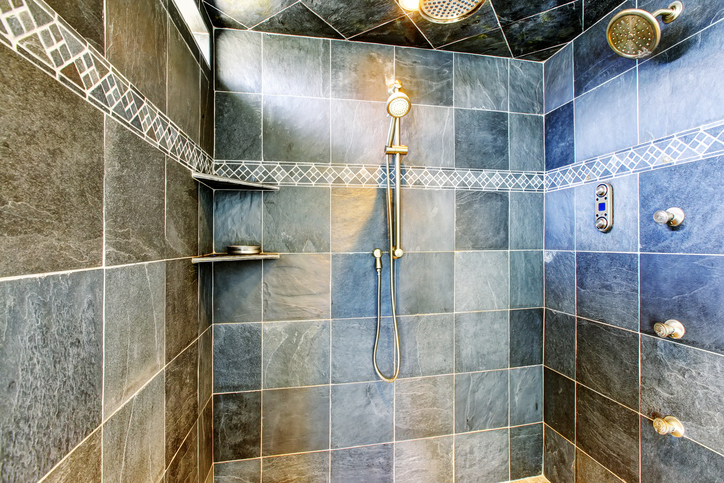Are you planning to remodel your shower or build a new one from scratch? Then you’re likely looking at all the different finishes, fixtures, and gadgets that can help turn your shower into a relaxing oasis. Yet here’s one important component many overlook – the shower valve.
While it may not sound as exciting as a rainfall showerhead or blue-tooth enabled settings, this component is the heart of your shower experience. Read on to learn what it does and how to select the right one for your bathroom remodel.

What Is a Shower Valve?
A shower valve, nestled within the wall of a shower, controls water temperature, flow, and distribution to the showerhead, tub spout, body sprays, and other accessories. Selecting the wrong one can result in a poor fit and even leaks. To help you select the proper option for your bathroom and budget, here are some key things to consider.
Things to Consider
Selecting the right shower valve will not only ensure that you have the shower of your dreams, but it can also prevent a plumbing disaster should you need a repair in the future.
Valve Type
There are the three options on the market today:
- Pressure-balancing valves sense a drop in hot or cold water pressure and quickly adjust the opposite pressure to maintain the desired water temperature. For instance, no more scalding hot water because someone flushes a toilet.
- Thermostatic valves have thermostats within them that allow the user to adjust the water temperature more accurately and consistently, down to a degree.
- Diverter valves are optional valves that control or “divert” the flow of water between multiple showerheads, wands, or body sprays. They are installed in addition to the main rough-in shower valve.
Outlets
Shower valves can have a varying numbers of outlets. For example, a simple shower head can have a valve with just one outlet. If you have a shower head and tub spout will need two outlets. A shower head, tub spout, and body jets will require three outlets, and so on. Therefore, it’s crucial to plan the water features of your shower before choosing (and installing) the shower valve. This will ensure the correct amount of outlets needed so you get the shower of your dreams.
Material
Because shower valves are typically tucked behind with limited access, it’s important to ensure that the valve is made of durable materials like brass or copper.
Water Pressure
Consider your home’s water pressure when choosing a valve for your shower. Some valves are better suited for low-pressure systems, while others work better with high-pressure setups.
Budget
Prices can vary depending on the type and brand, so it’s essential to do your research and find one that fits your budget without compromising quality.
Contact Eagle Service Company
If you’re unsure which valve is right for your shower, or simply want to discuss your bathroom remodeling project, contact Eagle Service Company today.


